Glaucoma Eye Drop Decision Assistant
Personalized Glaucoma Eye Drop Recommendation
Select your medical conditions, side effect tolerance, and cost concerns to get a personalized recommendation.
Key Takeaways
- Xalatan (latanoprost) is the most widely prescribed prostaglandin analog for lowering eye pressure.
- Travatan (travoprost) and Lumigan (bimatoprost) offer similar efficacy with slightly different side‑effect profiles.
- Timolol, a beta‑blocker, works via a different mechanism and is often paired with prostaglandins for tough cases.
- Cost and insurance coverage can vary widely; generic latanoprost is usually cheaper than brand‑name drops.
- Choosing the right drop depends on your pressure target, tolerance for side effects, and how often you can apply the medication.
If you’ve been told your eye pressure is rising, you’ve probably heard the name Xalatan. It’s a household name for anyone managing glaucoma, but the market is crowded with other drops that promise the same result. This guide breaks down how Xalatan stacks up against the most common alternatives, so you can decide which prescription fits your lifestyle and budget.
What Is Xalatan?
When treating glaucoma, Xalatan is a prescription eye drop containing latanoprost, a prostaglandin analog that reduces intra‑ocular pressure (IOP) by increasing fluid outflow through the uveoscleral pathway. Approved by the FDA in 1996, it quickly became the first‑line therapy for open‑angle glaucoma and ocular hypertension because a single nightly dose can lower IOP by 25‑30% on average.
How Does Xalatan Work?
Latanoprost mimics the body’s own prostaglandin F₂α, binding to FP receptors in the eye’s trabecular meshwork. This relaxation opens up tiny drainage channels, allowing the aqueous humor to exit more efficiently. The result is a sustained reduction in pressure, which is essential for preventing optic nerve damage.
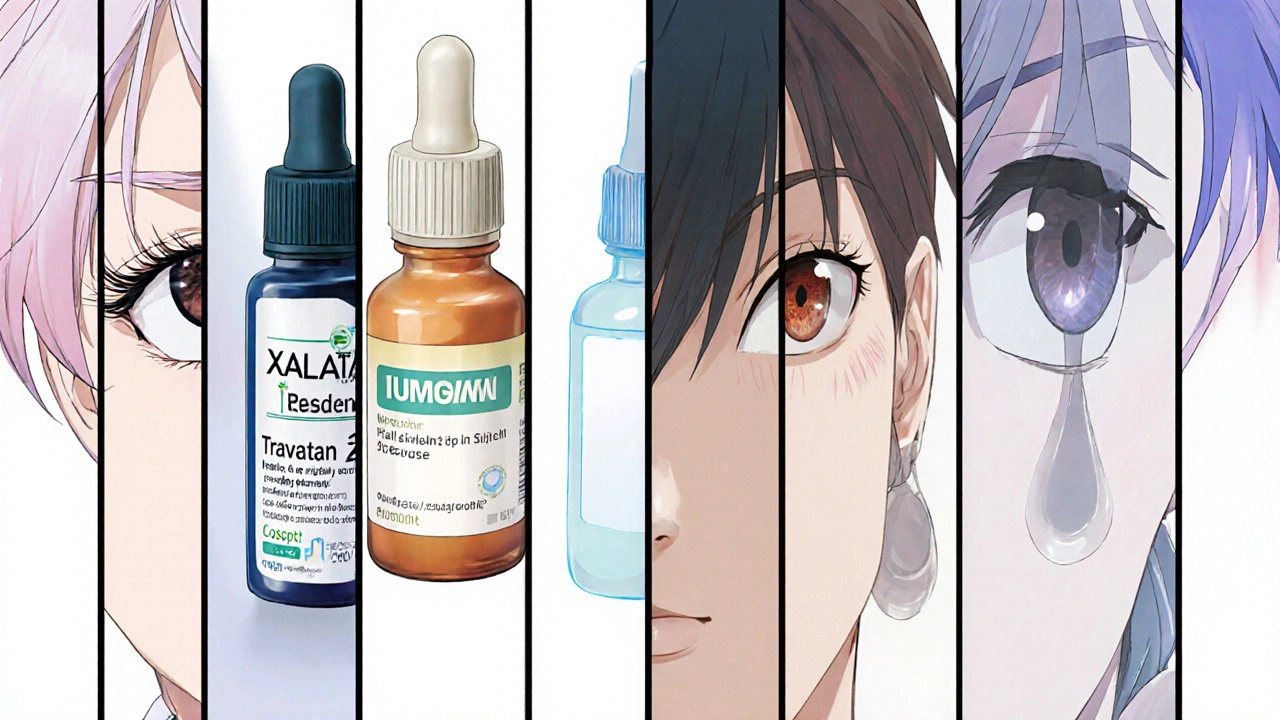
Common Alternatives to Xalatan
While Xalatan remains the gold standard, several other eye drops offer comparable pressure‑lowering effects. Below are the most frequently prescribed alternatives:
- Travatan (travoprost) - another prostaglandin analog with a similar efficacy profile but a slightly higher incidence of iris pigmentation changes.
- Lumigan (bimatoprost) - a prostaglandin‑related compound that can lower IOP a few points more than Xalatan, though it may cause more eyelash growth.
- Timolol (timolol maleate) - a non‑selective beta‑blocker that reduces aqueous humor production rather than increasing outflow.
- Cosopt (dorzolamide/timolol) - a fixed‑combination drop that pairs a carbonic anhydrase inhibitor with a beta‑blocker, useful when a single agent isn’t enough.
Side‑Effect Profiles Compared
Understanding side effects helps you weigh comfort against efficacy. Here’s a quick snapshot:
| Drug | Common Local Effects | Systemic Concerns |
|---|---|---|
| Xalatan | Blurred vision (temporary), mild eye redness, increased eyelash length | Negligible systemic absorption |
| Travatan | Similar to Xalatan, plus possible darkening of iris | Rare systemic effects |
| Lumigan | More frequent eyelash growth, possible eye irritation | Minimal systemic impact |
| Timolol | Dry eye, occasional burning | May affect heart rate or breathing in asthmatic patients |
| Cosopt | Transient stinging, bitter taste | Potential metabolic effects from dorzolamide |
Cost and Insurance Considerations
Price is often the deciding factor. Generic latanoprost (the active ingredient in Xalatan) is typically $20‑$30 for a 30‑day supply, while brand‑name Xalatan can run $150‑$200. Travatan’s generic version (travoprost) entered the market in 2022 and sits around $25‑$35. Lumigan’s generic (bimatoprost) is priced similarly to travoprost.
Beta‑blockers like Timolol are among the cheapest, often under $10 for a month’s supply. Fixed‑combination drops such as Cosopt are pricier, usually $80‑$120, but may reduce the number of bottles you need.
Check with your insurer’s formulary; many plans favor generics. If you’re uninsured, patient‑assistance programs from manufacturers can shave off up to 90% of the brand‑name cost.
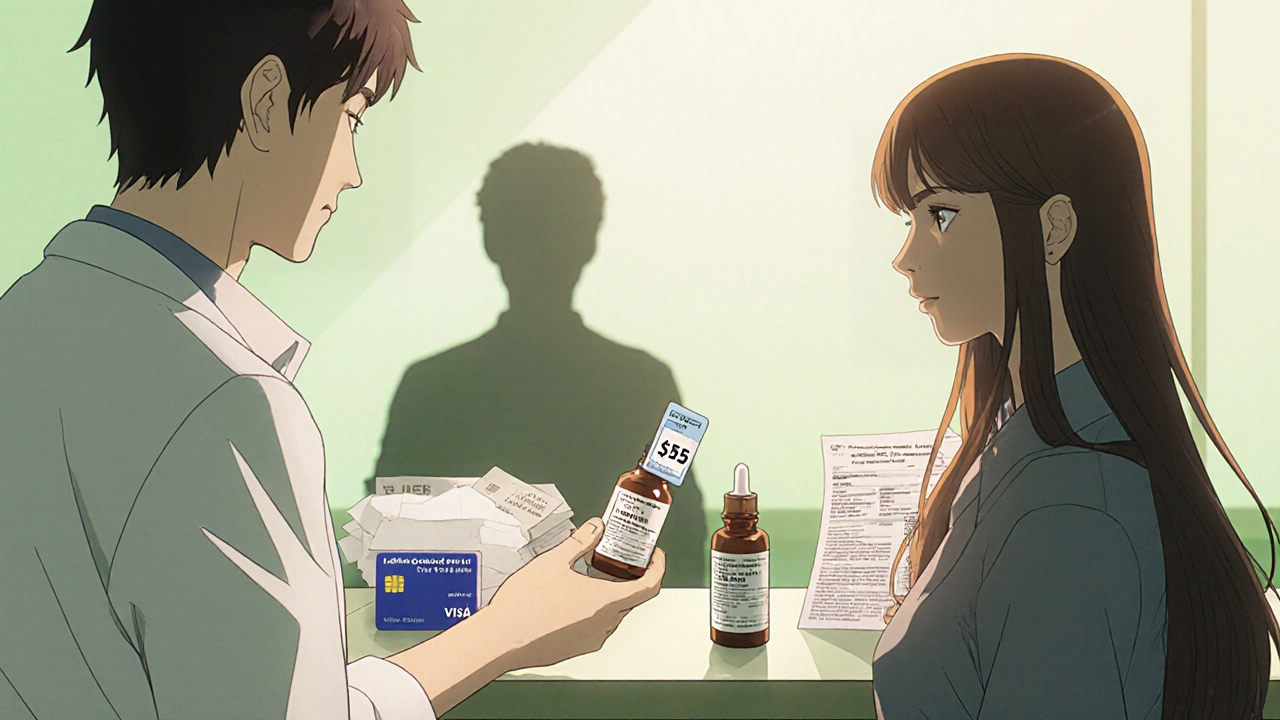
Choosing the Right Eye Drop for You
Here’s a decision‑tree style guide to help you pick:
- If you need maximal pressure reduction and can tolerate mild cosmetic changes, start with Lumigan or its generic.
- If you prefer a proven track record with minimal iris darkening, Xalatan remains a solid first‑line choice.
- For patients with asthma or heart conditions where beta‑blockers are risky, avoid Timolol and opt for prostaglandin analogs.
- If a single drop isn’t enough to hit target pressure, consider adding Cosopt to your regimen.
- When cost is the biggest barrier, ask your pharmacist for generic latanoprost, travoprost, or bimatoprost.
Always discuss any switch with your ophthalmologist. The American Academy of Ophthalmology recommends a trial period of 4‑6 weeks to gauge effectiveness and tolerability after any change.
Practical Tips for Using Glaucoma Drops
- Wash hands before each application.
- Pull down the lower eyelid to create a small pocket.
- Hold the bottle above the eye, squeeze one drop, then close the eye gently for 2‑3 minutes.
- Wait at least 5 minutes before applying another medication.
- Store drops at room temperature away from direct sunlight.
Frequently Asked Questions
Can I use Xalatan and Timolol together?
Yes. Combining a prostaglandin analog like Xalatan with a beta‑blocker such as Timolol is a common strategy when one medication alone doesn’t reach the target IOP. Your doctor will schedule follow‑up exams to monitor pressure and any side effects.
Do prostaglandin drops cause permanent eye color changes?
The pigment darkening caused by drugs like Travatan is usually gradual and often considered permanent. Xalatan has a lower incidence, but the effect is still possible.
Are there any natural alternatives to Xalatan?
While certain supplements (e.g., omega‑3 fatty acids) may support eye health, they cannot replace prescription drops for lowering IOP. Relying on natural remedies alone risks vision loss.
How long does it take for Xalatan to start working?
Most patients see a measurable pressure drop within 24‑48 hours, with the maximum effect reached after about 2‑3 weeks of consistent nightly use.
Can I switch from Xalatan to a generic latanoprost without a doctor’s note?
In most regions, generic latanoprost is considered therapeutically equivalent, so a pharmacist can often substitute it if you request a generic. However, confirming with your eye doctor ensures you stay within your treatment plan.
Remember, controlling eye pressure is a lifelong commitment. Whether you stay with Xalatan or move to an alternative, regular check‑ups and adherence to your drop schedule are the keys to preserving sight.
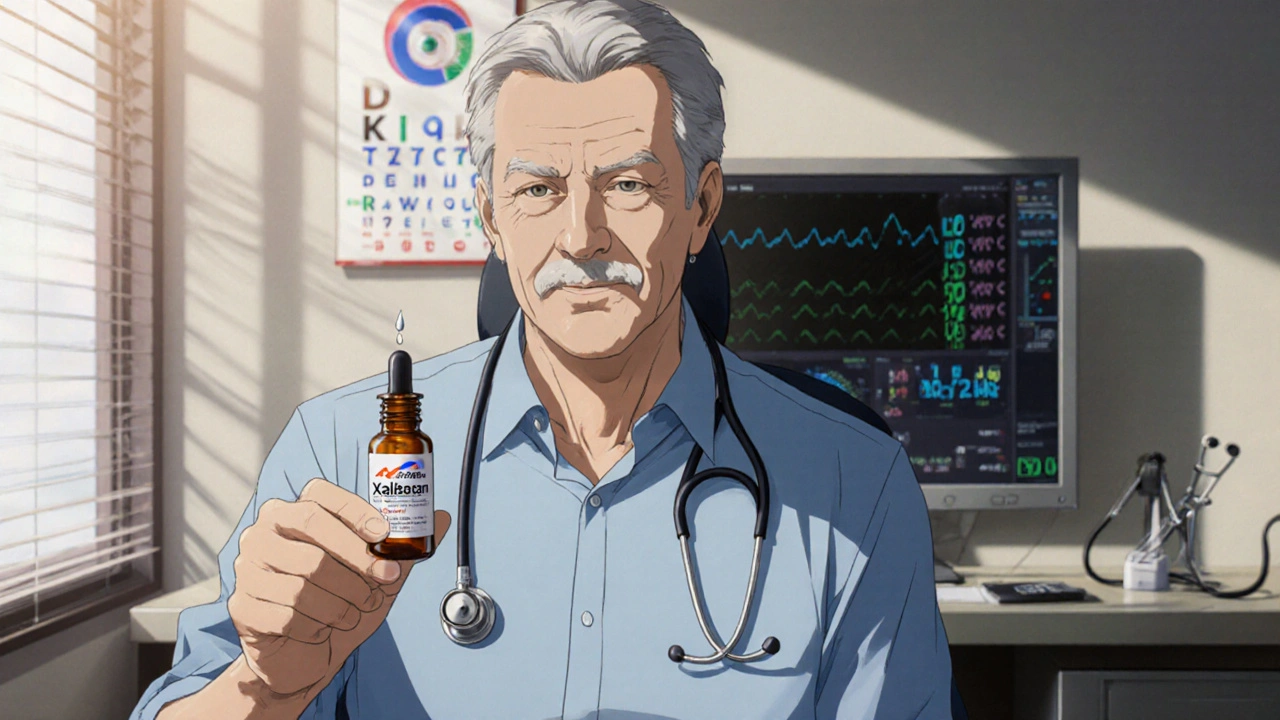

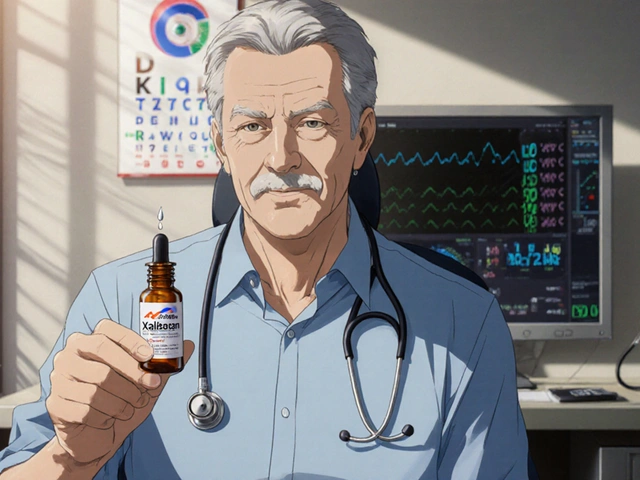

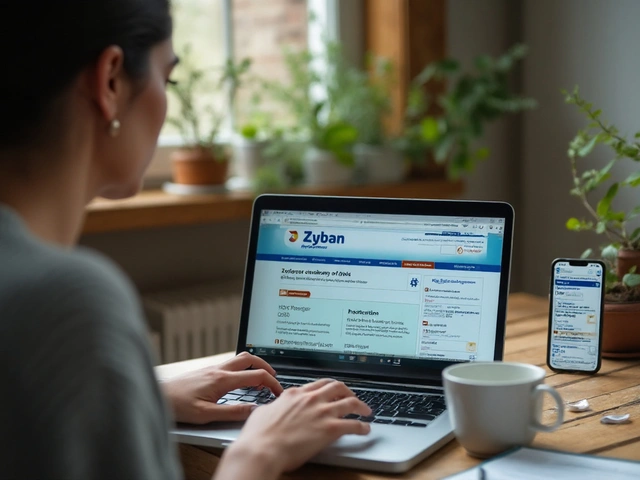

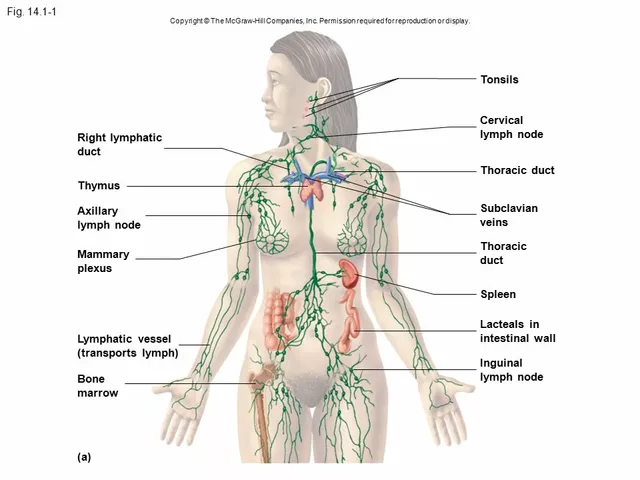
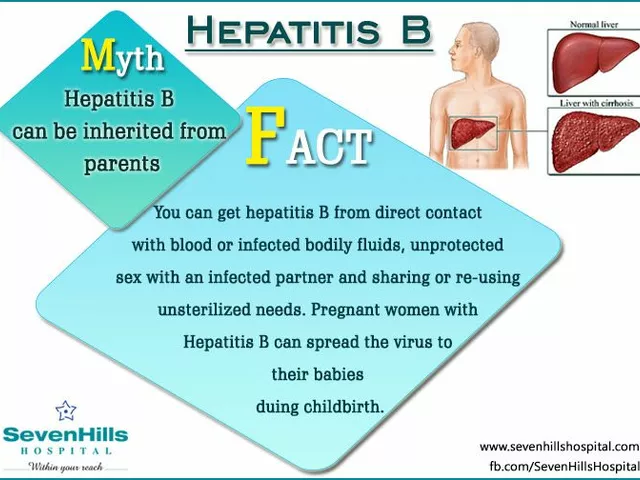

RJ Samuel October 17, 2025
Honestly, Xalatan’s hype is a bit overblown – it’s not the be-all‑end‑all of glaucoma therapy. The prostaglandin class does the job, but you can get similar pressure drops with cheaper generics like travoprost or bimatoprost, and they’re less likely to turn your lashes into a runway show. If you’re hunting for a budget‑friendly option, ditch the brand name and ask for the generic latanoprost. I’ve seen patients who swap to the generic and still hit their target IOP without any drama. So, in my view, Xalatan is just a well‑marketed name on a shelf of many viable choices.
Nickolas Mark Ewald October 18, 2025
This guide does a solid job breaking down the options and costs. It’s helpful to see the side‑effects side by side. I’ll definitely bring the table to my next appointment.
Sara Werb October 18, 2025
They dont want you to know that the pharma giants are pulling the strings!!! Xalatan is just a shiny facade while the real power lies in the hidden patents that keep cheap alternatives out of reach!!! The iris darkening? It’s a deliberate side‑effect to make patients keep buying the newer brand!!! Wake up and see the pattern!!!
Roberta Makaravage October 18, 2025
Let’s get real: the pharmacodynamics of prostaglandin analogs are scientifically proven, and any deviation from the data is ethically unacceptable. 🧠💡 Switching to bimatoprost merely for an eyelash boost is frivolous when the primary goal is neuro‑protection. Moreover, the systemic absorption is negligible, so the moral panic about heart effects is misplaced. 🌍✅
Lauren Sproule October 19, 2025
i appreciate the clear breakdown its super helpful for folks like me who are new to glaucoma meds lol it really eases the anxiety around picking a drop thanks for sharing
Malia Rivera October 19, 2025
When we examine ocular pressure through the lens of collective health, it becomes evident that reliance on foreign pharmaceutical monopolies is a subtle form of cultural erosion. Our own domestic producers could formulate equivalents that respect both efficacy and sovereignty. In short, choose generics and support home‑grown medicine.
lisa howard October 19, 2025
Let me take a moment to paint the full picture of why the conversation around Xalatan feels like a theatrically staged drama that never truly acknowledges the lived experiences of patients. First, the sheer ritual of applying an eye drop nightly can feel like a solemn ceremony, a reminder that each dawn might bring another test of vision, and that alone is enough to make anyone question the convenience of a single‑dose regimen. Second, the cosmetic side‑effects, such as the gradual darkening of the iris or the uncanny growth of eyelashes, are not mere trivialities; they alter one’s identity and can spark uncomfortable social attention, which many patients silently endure. Third, cost considerations are woven into the fabric of daily life, where a $150 bottle of brand‑name Xalatan can dwarf the budget of retirees, forcing them to make impossible choices between medication and other essentials. Fourth, the clinical trials that tout a 25‑30% pressure reduction often gloss over the variability among individual responses, leaving a gap between statistical averages and personal outcomes. Fifth, the psychological burden of knowing that even a modest pressure drop does not guarantee long‑term preservation of the optic nerve, which can breed a lingering sense of vulnerability. Sixth, insurance formularies frequently favor generics, yet bureaucratic hurdles and prior authorizations can delay access, turning a simple prescription into a labyrinthine odyssey. Seventh, the combination therapies, like Cosopt, introduce additional flavors of side‑effects, from bitter tastes to transient stinging, which can deter adherence especially among the elderly. Eighth, the role of the ophthalmologist is pivotal; their willingness to tailor therapy, respect patient preferences, and monitor progress determines the success of any regimen. Ninth, patient education remains a cornerstone-knowing how to properly instill a drop, wait five minutes before another, and store the medication correctly can make the difference between efficacy and waste. Tenth, the community of glaucoma patients often shares tips on forums, creating a grassroots knowledge base that complements the official literature. Eleventh, emerging research into neuroprotective agents may soon shift the paradigm, making pressure‑lowering drops just one part of a broader strategy. Twelfth, the cultural narrative that frames eye drops as merely “medicine” neglects the lived reality of daily rituals and self‑image. Thirteenth, the interplay between systemic conditions like asthma and beta‑blockers such as timolol adds another layer of complexity to the decision tree. Fourteenth, the importance of regular follow‑up appointments cannot be overstated, as intra‑ocular pressure can fluctuate and necessitate adjustments. Finally, at the end of the day, the choice of Xalatan versus an alternative is less about a single “best” drug and more about an individualized tapestry of cost, side‑effects, lifestyle, and personal values that each patient weaves for themselves.
Cindy Thomas October 20, 2025
Sure, the article’s thorough, but let’s not pretend that “generic latanoprost” magically solves every budget nightmare :) The truth is, insurance hoops can still trap you in pricey brand cycles, and patient adherence often sputters when side‑effects creep in. Also, the claim that “lumigan lowers IOP a few points more” ignores inter‑patient variability – some folks see no difference at all. So while the table is helpful, real‑world outcomes are messier than a neat spreadsheet can capture.
Kate Marr October 20, 2025
Our own research labs should spearhead the development of affordable prostaglandin analogs 🇺🇸💪. Dependence on foreign pharma only weakens our healthcare autonomy.
James Falcone October 20, 2025
Brand loyalty is a corporate symphony we don’t need.
Frank Diaz October 21, 2025
The philosophical underpinnings of ocular pressure management demand more than mere biochemical reduction; they require a holistic alignment of patient lifestyle and systemic health. When clinicians prescribe Xalatan without considering the patient's cardiac profile, they exhibit a narrow, mechanistic view. A guru’s wisdom would incorporate both the drop and the broader context of wellness. Therefore, prescribe with discernment, not just habit.
Mary Davies October 21, 2025
Isn't it fascinating how a single drop can become the centerpiece of a lifelong drama, each night a silent performance under the harsh light of medical necessity? The subtle sting of timolol, the whisper of prostaglandins – they echo louder than any spoken warning. Yet we accept this quiet torment, hoping the numbers on a chart will tell a story of safety.
Valerie Vanderghote October 21, 2025
Let me just say, while the guide is neat, it glosses over the emotional rollercoaster patients endure when their eyes feel like sandpaper after each application. The stinging, the bitter aftertaste for those on combination drops, the constant fear of missing a dose – all of these are hidden under the sterile headings. Moreover, the article barely acknowledges the social stigma attached to noticeable eyelash growth; some patients feel self‑conscious in public. And the cost discussion? It barely scratches the surface of the financial strain on families with multiple prescriptions. In my experience, navigating insurance paperwork becomes a full‑time job, leaving little room for the simple act of caring for one's vision.
Michael Dalrymple October 22, 2025
Overall, this comparison provides a valuable framework for clinicians and patients alike to make informed decisions. It emphasizes the importance of individualized care, balancing efficacy, side‑effects, and affordability. I encourage readers to discuss these options with their ophthalmologists and to monitor intra‑ocular pressure regularly. Maintaining adherence to the chosen regimen is essential for preserving visual function over the long term. Together, we can navigate the complexities of glaucoma management with confidence and clarity.